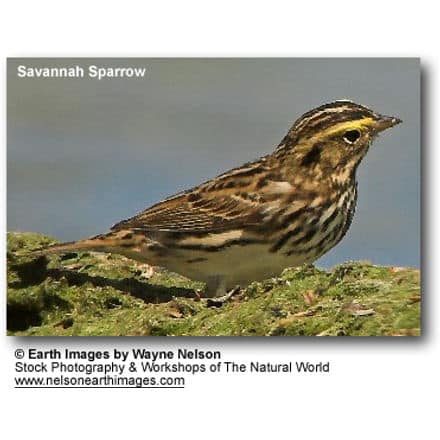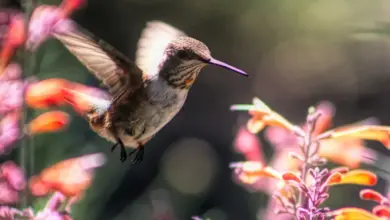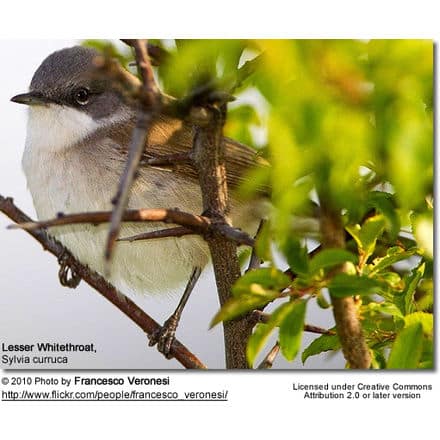Recommended Diet for Small Seed-eating Birds
Recommended Diet for Small Seed-eating Birds, such as Finches / Canaries
Feeding canaries / finches is fairly easy. They will survive on just plain canary seed for some time. But a one-sided diet will cause them to be more susceptible to diseases and less productive as breeders.
Many veterinarians recommend a diet that consists 80% of canary pellets. This is mainly because they assume that the regular bird owners will not be able or willing to provide a good varied diet to their birds that includes fresh food items — in which case, pellets are preferable to a seed-only diet.
However, given the poor quality of the available pellets, most of which contain harmful chemicals and additives, a diet that is close to their natural diet is not only more enjoyable for the canaries, but may pose fewer long-term health ramifications.
If it is decided that a formulated diet is preferable, then choose the best one you can get, such as the Harrison’s pellets.
For good health they need a balanced and varied diet, which should include a quality dry food / seeds and various greens. Poppy seeds, for example, are very nutritious, and adding a LITTLE several times a week will contribute to good health. You can also buy quality finch or canary mixes online … Feel free to buy a canary mix (for convenience) and mix in other seeds / dry greens that you know will contribute to their good health.
The optimal diet will be a good quality seed mix and plenty of fresh food items (including greens). Canaries benefit from a supply of green food such as lettuce, dandelion leaves and nasturtium leaves. They can eat any produce you do, with the exception of avocado. They readily accept and enjoy fresh fruits / veggies a lot, and parsley — and dandelions are VERY good for them. (Please scroll down to see more suggestions.)
Fresh, finely-chopped, organic Kale is naturally high in calcium and other nutrients. You can clip the kale leaves to the cage or add it to the nestling food. It can be finely shopped in a high-quality food processor.
You can get a lot of free “green stuff” (safe plants please!) from your own garden to feed to them – as long as the plants have not been chemically treated, i.e., pesticides, chemical fertilizers). (For non-toxic ways to control pests in the house or garden, please visit the Green and Healthy website.) Care should be taken to ensure leaves supplied are clean and have not been sprayed with any chemicals.
Canaries also enjoy little bits of fruit, but be careful to offer only what the bird can eat in one sitting, or you may wind up attracting ants, or hornets. (Controlling ants in your house, your garden, or your aviary – in a non-toxic way (Green and Healthy website).)
Color Feeding / Red-Factor Canaries
During the moulting period it is advisable to supplement their diet with egg food or nestling food (can be bought as a dry mix to which water is added until a crumbly but not soggy consistency is achieved). Some nestling or egg foods can be served dry, others are best served with a soak seed mix; this is a special mixture of seeds meant to be soaked, rinsed, and sometimes sprouted a little, before being served. Cucumber is also good during molts.
During the molt season, your canary needs more fat in his diet, such as flax and niger seeds.
After molt, cut back on the additional fat, and feed your canary niger and hemp seeds as their treat to motivate them to sing. (*Hemp Seeds are often referred to as “super-seeds” as they offer a complete amino acid profile, have an ideal balance of omega 3 and 6 fatty acids, and provide an impressive amount of trace minerals – they also have the highest concentration of protein in the plant kingdom.)
Soaked seeds are an absolute necessity for the feeding hen and for the newly weaned young. However, they are a treat for all birds. Cracked corn, wheat, buckwheat, and safflower, normally too large and hard, are made acceptable to canaries by soaking. Soaking breaks down complex carbohydrates rendering the seed more palatable and more highly digestible. This is done by taking a special soak seed mix and adding two parts, or more, of water and refrigerating. Soak for at least 24 hours. Rinse well and strain before feeding.
Sprouts are not the same thing as soaked seed. Not all seeds can be sprouted. Most bird seeds are treated with preservatives and vitamins and will not germinate. Seeds for sprouting should be kept separate for various species of plants have different germinating times and requirements. In addition to the regular bird seeds, many seeds for sprouting are available in health food stores. My favorite is the Chinese mung bean which is very easy to sprout and possesses a high degree of palatability for the birds. I have also used soy beans for sprouting. Most birds don’t like alfalfa sprouts.
Sprouting seed is the simplest way to provide your birds with fresh greens. For a few birds only a quarter cup of seeds should be sprouted at a time. Seeds increase in volume tremendously when sprouted. Place the seeds in a clean glass jar. Fill with tap water and let stand at room temperature for twenty-four hours. Rinse and drain completely. Repeat the rinsing and draining completely daily until the seed has sprouted. If a foul odor or mold develops, discard. Preparations are available to prevent spoilage. Rinsing and draining well is very important. Any surplus sprouts may be refrigerated up to two weeks.
Nestling food can also be mixed with egg. To four cups of dry nestling food (dry mixes are available at the store) add one pound grated carrots, and one dozen grated hard boiled eggs. Chop the eggs in a food processor shells and all. This is enough to feed about fifty hens with. NOTE: Boil the eggs for twelve to fourteen minutes to ensure that no fowl diseases are transmitted to the canaries.
But I enjoyed giving them freshly made batches. My favorite nestling recipe:
I boil some eggs, mash the hard-boiled eggs, including their shells (which are a great source of calcium) powderized with a potato smasher, add soaked wholewheat bread and mix it well. Canaries and finches absolutely LOVE it!. Give first thing in the morning – before feeding anything else. Remove after 30 minutes or so – as it will go off fairly quickly, especially in the summer heat.
This mixture is given in an amount that the birds will eat in one hour. All birds get one treat cup per day of this egg mix. The supply for birds with feeding young is constantly renewed during the day. The nestling food with egg spoils very rapidly, particularly during the summer. It would be best to prepare the egg mix fresh every day. If this is not possible, refrigerate the excess immediately.
NOTE: The feeding of eggs is best limited to the breeding season, since overfeeding can result in health problems. Stop feeding egg food once the chicks are able to crack shells
Other Food Items
Calcium / Mineral Blocks: Birds should always have access to minerals, including calcium. This is particularly important for maintaining a health calcium level in your breeding finches.
- You could provide a dish filled with crushed egg shell (from boiled eggs to kill any bacteria) and/or attach a calcium / mineral block to the cage. However, in order to absorb calcium properly, Vitamin D3 is needed. Vitamin D is normally produced in the skin through ultraviolet rays obtained via daylight / sun exposure. Indoor birds, or during the winter time in the northern hemisphere when not sufficient sunlight exposure can be obtained, appropriate indoor lighting / full-spectrum lighting can make up for the lack of natural sunlight. Supplements that include both Vitamin D3 and calcium are also available.
Protein – especially important for breeding birds, and should also be available to hens in the spring prior to the breeding season.
- Mealworms are a great and inexpensive choice — but for those who don’t like the idea of feeding insects and worms, a high-protein nestling food is acceptable.
- Shelled hemp seeds (aka Hemp Heart) are comparable in size and consistency to chopped sesame seeds. They have virtually the highest concentrated balance of proteins, fats, vitamins and enzymes. As they are a significant source of protein, they are used to bring canaries and finches into breeding condition and to advance song. Breeders also provide a little hemp during the molt when birds need extra protein to replace molted feathers.
- Sprouted or germinated seeds are usually more easily accepted by “seed addicts” than fresh fruits and vegetables.
- Sprouted seeds are healthier as the sprouting changes and enhances the nutritional quality and value of seeds and grains. Sprouted seeds are lower in fat, as the process of sprouting utilizes the fat in the seed to start the growing process – thus reducing the fat stored in the seeds.
- Sprouted seeds will help balance your bird’s diet by adding a nutritious supply of high in vegetable proteins, vitamins, minerals, enzymes, and chlorophyll.Soaked and germinated “oil” seeds, like niger and rape seeds, are rich in protein and carbohydrates; while “starch” seeds, such as canary and millets, are rich in carbohydrates, but lower in protein.
- It is an invaluable food at all times; however, it is especially important for breeding or molting birds. Sprouted seeds also serve as a great rearing and weaning food as the softened shell is easier to break by chicks and gets them used to the texture of seeds.
- Note: Birds that have a tendency towards developing gout should be fed a diet low in protein. Plant based protein is not as likely to induce gout, but it can – if fed in large amounts. A diet too high in protein diet can also put a pet bird into breeding or hormonal mode.
Vegetables and fruits should be part of a pet or aviary bird’s daily diet. This includes apples, grapes, many garden vegetables such as spinach, watercress, field lettuce, poppy, chickweed, dandelions, carrots, corn on the cob, peas, endives and sweet potatoes.
- Greens: Greens such as dandelion, ChickWeed or Thistle, or salad greens, such as Buk Choy, Lettuce or Cabbage, should be fed daily if possible. Just a little – if you have a single bird, as you don’t want to upset its metabolism.
- Convenient Sources of Fruits / Veggies:
- Baby Food: Human baby food with fruits and vegetables (i.e. Gerbers)
- Dry Fruits / Veggies: When fresh fruits and vegetables are not available, dehydrated fruits and vegetables work wonderfully. Many birds love their crunchiness, or they toss them into their water dish (creating a “soup” of some sorts) and then eat them once they are rehydrated. Be prepared to change the water more often throughout the day. Dried fruits and vegetables have the advantage that they don’t go off. You could literally leave them in their cages for days (unless they get wet, of course). This surely comes in handy when traveling. Dried fruits and veggies also help convert “seed junkies” to a healthier diet. When you are at home, you can moisten the dried fruits and veggies with warm water to rehydrate them. Birds tend to LOVE warm fruits and veggies, maybe because it gives them flashbacks to the times when they were chicks and were fed warm regurgitated food by their bird parents.
- It is important to keep in mind that some companies add artificial coloring to their dried fruits and veggies to make them visually appealing. Only purchase naturally dried fruits without any sulfur dioxide, as this preservative is known to increase hyperactivity, aggressiveness, feather shredding or picking due to allergies.
GRIT:
The opinions on the necessity and safety of grit varies greatly. The following should be considered.
Function of grit: Grit helps with removing the tough shells or hulls around seeds – in cases, where the shell has not been removed prior to being swallowed. Most bird species (such as parrots), remove the shell with their beaks before swallowing, in which case grit is not serving any purpose and may in fact be harmful.
Grit come in either soluble or insoluble forms.
Insoluble Grit: silica sand (crushed glass) – may accumulate in the digestive system causing obstruction in addition to possibly having sharp edges that could cut the delicate lining of a stressed hen or cocks’ esophagus, stomach or intestines.
Soluble Grit, includes cuttlebone, oyster shell, limestone, gypsum, etc. Soluble grit is dissolved by digestive acids.
As far as canaries is concerned, studies have shown that finches, including canaries, may have a behavioral or nutritional need for the ingestion of SOLUBLE grit. Insoluble grit is not believed to offer any benefits and may indeed lead to severe health problems, such impaction (blockage) of the crop, ventriculus (gizzard) or proventriculus (glandular portion of the stomach of birds, also sometimes referred to as the “true stomach”).
Birds may also need SMALL AMOUNTS of grit (several grains every few weeks), if they are suffering from certain digestive problems or have pancreatic disease and, therefore, lack the digestive enzymes to properly process seeds. If digestive issues are apparent, it is recommended to discuss with a qualified bird vet the need for grit in your pet’s diet.
If a decision is made to provide grit, it is recommended not to place it on the cage floor, where it could easily be contaminated with droppings. It is also important to only provide grit periodically, which may be once weekly or as recommended by the veterinarian.
Make sure that the grit that you offer does not contain any charcoal, as it could interfere with the absorption of vitamins such as A, B2 and K.
WATER: It is essential to have clean water available at all times …
Probiotics:
- Very important for molting, stressed or sickly birds, chicks or elderly pets, as well as those who have recently undergone antibiotic treatments. Antibiotics destroy “friendly” bacteria in the gut, allowing harmful pathogens to grow unchecked. Probiotics suppress the growth of potentially harmful organisms and boost the immune system. Acidophillus also helps to restore the microbial balance within the digestive tract. The probiotic strains acidophilus and bifidum release anti-fungal enzymes and alkalinize the body, so pathogens, such as candida (a big problem with chicks and stressed birds), can’t flourish.
Never feed: caffeinated drinks, alcoholic beverages, chocolate, pits of most fruits, avocado … More on “toxic foods“
Click To Buy:
UnRuffledRx Nutritional Calcium Supplement for Birds Magnesium + Vitamin D3
Hatortempt 10lbs Bulk Dried Mealworms – Premium Non-GMO Organic
HealthyGut™ Avian Probiotics Dietary Supplement for Parrots
ZuPreem FruitBlend Flavor Pellets Bird Food for Very Small Birds
Further Finch Reading
- Finch Information
- Index of Finch Species
- Photos of the Different Finch Species for Identification
- Common Health Problems of Finches
- Finch / Canary Diet / Nutrition



